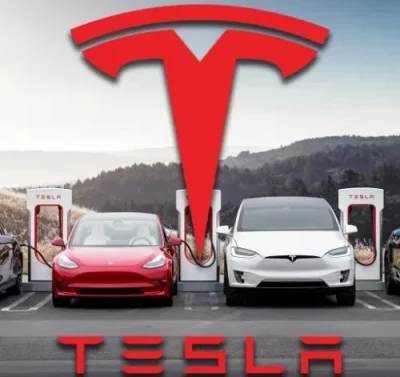According to Matthew Ball, managing partner of venture capital company Epyllion Co. and author of “The Metaverse and How It Will Revolutionize Everything,” Apple may be restricting metaverse research. While Apple looks to be in a position to “thrive in the coming age” of more immersive computing, Ball believes its distribution dominance is constraining the industry.
“Apple does not permit crypto-based virtual worlds,” Ball stated Thursday on CoinDesk TV’s “First Mover” show. “They are successfully stifling a particular form of disruptive innovation and category.”
By avoiding intricate virtual worlds, the digital behemoth wields unfair power over “what is available and what isn’t,” according to Ball. The metaverse is a new computer category that some envision as the internet’s next frontier. According to a Pew Research Center survey, more than half of IT innovators and developers believe the metaverse will be incorporated into people’s daily lives by 2040. According to Ball, Apple sells more iPhones in the United States than it does internationally, and it derives a major percentage of its earnings from managing software on its platforms through its control over APIs, or application programming interfaces, which act as a bridge between two programs.
Apple’s iOS interface applications require Apple’s permission and must pay a charge to Apple. The metaverse is not the only field that Apple appears to have excluded from its famous app shop. It has adopted a conservative attitude on bitcoin and porn, for example, according to Ball. “Most crypto games today are either not available on the iOS app, or they are, but they’re rather simple,” Ball explained. He did, however, point out that some of the products that aren’t allowed on the App Store are still available as a “browser experience.”
According to Ball, Apple is in a unique position to dictate the destiny of whole sectors. And its decisions aren’t always consistent. Among the estimated 30 crypto-based games in its app store are Axie Infinity, Sandbox 3D, and CryptoKitties. This might be attributed in part to a “clampdown on business models [and] cloud gaming,” according to Ball. “We see them charging contributions made by users.” Apple takes a 30% commission on App Store sales.
The next frontier
Ball believes Apple consumers should have greater control over how they use their devices, citing the restricted identity mechanisms available on iOS devices, such as Apple ID. Apple restricts what users can do and access in favor of tailored experiences, which, given the iPhone’s massive market share, is likely inhibiting innovation, according to Ball. “No one can acquire your identity, social network, data, and virtual assets and then use them to exclude competitors,” he stated.
Few people understand what the metaverse is, and no one knows what it will become. Ball believes the word will be obsolete in a few years. “You’ll discover in the next years that we’re frequently within a 3D simulation,” Ball said, “maybe without even realizing it.” ” That is, assuming Apple does not suffocate the metaverse today, according to him. Apple did not react quickly to a request for comment.
During today’s keynote speech at the company’s Facebook Connect 2021 event, Facebook (aka “Meta”) CEO Mark Zuckerberg made several barely veiled jabs at Apple and the broader app market. He especially slammed app platforms and their associated fees for “suffocating innovation,” while also justifying Facebook’s choice to maintain some of its charges as it invests more in its expanding virtual reality ecosystem and Oculus Quest Store. His remarks follow Apple’s recent app privacy regulations, which have affected Facebook’s ad income. Apple has introduced App Following Transparency, which allows users to prohibit apps from monitoring them across other apps and websites. However, Facebook has admitted that this change has resulted in a loss of money.
Now, Facebook sees the potential in collaborating with Oculus to construct its app platform to give a new revenue stream – one in which the platform profits rather than the developer, who must pay commissions. Furthermore, one whose firm cannot be destroyed by the whims of a competitor’s strategy shift. Zuckerberg agreed that the time had come to make this change, saying in recent years that “creating stuff isn’t enough.” “We also need to help with ecosystem growth so that millions of people have a stake in the future, are rewarded for their efforts, and benefit as the tide rises — not just as consumers, but as producers and creators,” he said.
“We’ve also learned what it’s like to design for other platforms, which has been humbling.” And conforming to their expectations has had a huge influence on my opinions of the IT sector,” Zuckerberg said. “Most significantly,” he said, “I’ve come to believe that a lack of choice and expensive costs are strangling innovation, stopping individuals from starting new enterprises, and slowing down the entire internet economy.” These comments appear to be addressed at Apple and Google, the platforms on which Facebook’s primary products are mostly built. In-app transactions, such as when users subscribe to artists, purchase badges, or tip streamers directly, necessitate Facebook paying app store fees.
While Apple and Google have both decreased their costs for smaller businesses, media providers, and subscription applications, the standard platform/developer split remains at 70/30. Due to App Store restrictions, Facebook has also been prevented from launching other items that may have increased revenue, such as its newest gaming service. When it launched Metaverse Gaming for iOS without games last year, the company aimed at Apple’s rules. Apple does not permit apps that combine other apps or games since it would limit the company’s ability to earn money from third-party developers.
As a result, Facebook Gaming iOS users could only watch streams rather than play mini-games like Android users. The underlying concern for Facebook’s survival is that platform policy changes might threaten its ad revenue.
We see this as the entry point for all businesses to transition their physical items into the digital realm. Almost all corporations have moved away from physical production in recent years, where you would design your automobile by carving out a body out of wood as your initial mock-up and then building a prototype out of steel before moving to production. Nowadays, everyone creates digital assets first. The fashion industry is developing digital clothes and visualizing them before deciding whether or not to produce them. As a result, the whole planet’s creative process is digital, and it is subsequently transferred to the real world.
However, all of these organizations now have the chance to have direct interaction with all of their clients, not just with their physical items, but also with their digital products. Consider all of the opportunities that come with it.
First and foremost, it is a marketing medium and a pleasant and exciting method to expose your goods to the world. Ferrari dropped their newest supercar into Fortnite, and gamers were able to drive it around at the same time that the genuine car premiered in the world. It was well received by players, reaching a large number of individuals, and did not feel like advertising. It was a wonderful digital experience that mimicked reality.
Apple should be free to provide its payment service to developers, but they should compete on margins equitably. And competition will drive those payment processing rates down from 30% to something quite competitive with the market rate of 2% to 3%. Or even lower if they innovate, as witnessed in China, where payment processing fees are considerably cheaper than the rest of the globe. Epic is now suing Apple and Google over their smartphone policies. If these activities continue on smartphones, they will not only dominate digital commerce and digital commodities on smartphones, but they will eventually control the metaverse and all physical trade taking place in virtual and augmented reality.
They have said that if you use an app to make purchases that entitle you to possess digital items, you must utilize their payment method. As a result, the physical and virtual worlds converge. You’ll go out and buy a real product, and you’ll be entitled to the virtual one at the same time. In the actual world, you buy a pink Ferrari, and in the metaverse, you own it. Or, for example, the apparel or toys you buy – just about anything will have a digital twin at some point. And,
if you look at the terms structure, Apple and Google have constructed conditions that will give them a grip over the metaverse, unless the behaviors they’re permitted to engage in alter dramatically.
On the other side, there are all of their real existent business practices and companies in which they display advertisements connected with your content feed and do not share income with the authors of the material that created the interaction. And there is an ad economy that they control, which is not an open ad economy and exhibits all of the characteristics of an utterly closed environment. The creators receive a relatively little income share (about 5% of overall earnings). And it’s not simply a fad. I believe their current company is not a creator-centric enough ecosystem. So, if Meta is to truly bridge the gap between its existing practices and its future goal, a lot more effort will be required. And there is always commercial pressure to avoid doing such public things. Because it turns out that doing closed things often results in more money.
To progress beyond the current state of virtual and augmented reality, I believe that whole new types of displays, fully new manufacturing techniques, and altogether new software stacks will be required. And I believe that many aspects of this will require a decade of continuous multibillion-dollar yearly investment.
Another key component, I believe, is at work. If you look at the history of the iPhone and Android, as well as the first social networks, you’ll see that everyone in the outside world was duped, as were all the major brands, into handing over their customer relationships to these companies — on the promise that they’d be able to have direct relationships with their customers. Then, over time, Apple, Google, and Facebook created ever-higher barriers to directly accessing their customers. Originally, anybody could follow a company on Facebook and view all of their postings, but then they began removing those customers’ reachability and taxing those companies and requiring them to pay for running adverts to reach the people that they’d helped Facebook reach.
Apple did look at that with game makers and app developers, telling them, “Go build applications for our platform,” and then, ten years later, we discover that they are making the vast bulk of the profit from these apps. They make far more money from the apps than the developers do.
Do you see people in driverless cars enjoying driving an hour and a half somewhere because they [can go into] the metaverse and shoot aliens or anything in 20 or 30 years? I don’t see people’s life becoming engulfed in this type of media in the next decade or two. I believe this is something you do for fun, and perhaps for employment in the future. However, I believe it is a significant stretch to go as far as most of the science fiction literature has gone in these areas.
So you remove 30% off the top, resulting in a 70% profit margin for Apple. And developers face all of the costs, including even paying Apple to have their brand name appear first in search results! They registered the trademark, then someone searches for it — and Apple displays them a product that isn’t what they were looking for, simply to make more money! But the good news is that none of these businesses, software developers, or ecosystem members will be misled again. Nobody is going to sign up for more of this walled garden nonsense, as they have in the past unwittingly.
Every brand will go in and negotiate agreements with every prospective metaverse operator, including Epic, Roblox Corporation, Meta, and everyone else, to guarantee they can have direct consumer interaction. We know this because we spoke with all of these firms, and they are all adamant about staying first-class citizens in the metaverse and not being intermediated by any company with whom they collaborate. The app store does not provide a service. The app store does developers a disservice. The app store drives developers to handle their software poorly to provide a poor user experience and charge uncompetitive handling and processing fees, inflating the price of digital products.
It’s a weird system that should never have existed… it should have been abandoned as soon as the business reached size. There is a lesson in the metaverse growth that we can all learn from. We need to extend and link all of our systems. Our economies must be linked. We must transition our proprietary technology to open standards, file formats, and networking protocols so that all of our computers can communicate with one another and we can all participate in the metaverse. That will be a process that will take place throughout the following decade. We now have separate executable applications on your computer to run Fortnite, Roblox, and other games.
In the future, I believe you’ll see something akin to a metaverse browser that refers to the appropriate standard and allows you to view any metaverse experience. You’ll have metaverse servers run by several firms. You’ll have both first-party and third-party material. You’ll have autonomous item stores that have engaged in economic agreements with one another and with content creators to split money depending on interaction and develop a whole metaverse economy built on open principles. That will be an intriguing process, and I believe the open version will be far more enticing, both for customers and for all participating companies.
I believe it will triumph over any attempt to create a walled garden, a locked-down version of it. I believe that significant brands will simply avoid firms that do not provide an open road map. They will expect and demand that everyone with whom they work is a partner. In year one, you open your ecosystem in one way; in year two, you open it in different ways. Within ten years, we will have a truly open metaverse in which everyone will be a peer.
They may do something similar with the metaverse Specific. The crucial task is to prevent them from exerting that level of monopolistic power. Otherwise, we’ll all be building this and they’ll steal it from us. If that occurs, I believe we will enter a very typical phase of incremental construction… in which monopolies do not get to dictate terms to anyone and everyone competes with each other. In addition, rather than having one or two dominating firms controlling everything, you might have a really rich ecology. It now exists in practically all businesses except the technology industry.
When it comes to how cell phones have changed people’s lives, we are much more in touch with all of our friends and have much better connectivity everywhere we go. Our lives, however, are not centered on cell phones. And I don’t believe their future life will be centered on the metaverse. Simply said, we’re not going to connect our brains to a gadget and meditate while our consciousness is buried in some virtual universe. In 20 years, the future will be no different from the present. “Our lives do not revolve around smartphones”! How many individuals do you know who own a smartphone? There are three or four billion individuals, and I believe the average person spends four hours every day on their smartphone.
What would characterize our life as being centered on cell phones if that was not the case? You’re viewing videos on your phone that you’d normally watch on your TV, so you’re utilizing one device instead of two. However, the smartphone has not fundamentally altered the fact that you are viewing a television show. You may view it whenever you want and from wherever you are.















